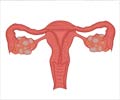Studies find a common biological protein molecule, called SHP-2, plays a crucial role in encouraging placenta growth.
The study led by Dr Melissa Westwood, one of the team at the University of Manchester, found that SHP-2 could even hold the key to mitigating growth restriction of babies in the womb."For fetuses to grow well in the womb they need to get nutrients and oxygen from their mother. These come via the placenta and so as the fetus grows and its demand on mum increases, the placenta also must increase in size. If the placenta doesn't grow properly, the fetus is unable to receive all it needs from the mother and its growth is restricted. This can impact seriously on the health of the newborn. Furthermore we have learned recently that it dramatically increases the risk of ill health in adult life," she said.
After investigating a group of proteins called the insulin-like growth factors (IGF), the researchers have discovered that SHP-2, a molecule within placental cells, is a crucial mediator of the effects of IGFs in stimulating the placenta to grow.
"We know that placentas need an array of factors to support their growth, but until now we didn't realise that SHP-2 was so important for ensuring that these factors do their job," said Westwood.
"Research from our lab and others around the world suggests that the placentas of growth-restricted babies might not grow because they are resistant to the effects of growth factors. We know that in many tissues in the body, SHP-2 is involved with the action of other growth factors - not just IGF. Targeting the mediators of growth factor actions rather than the growth factors themselves may be a good way to intervene in cases of growth restriction - a bit like sending a positive email to all your friends at the same time.
"However, any therapy based on this finding would have to be designed carefully. Most tissues of the body have SHP-2 doing one or more important jobs and so we would need to restrict therapy just to the placenta. This is possible but certainly challenging," she added.
Advertisement
The study has been published in Endocrinology.
Advertisement
ARU












